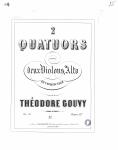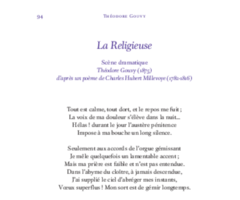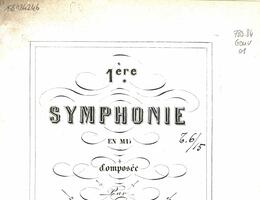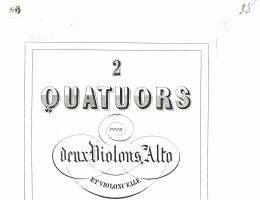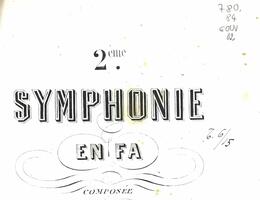Théodore GOUVY
1819 - 1898
Composer
Théodore Gouvy was born into a French-speaking family in the Sarre, shortly after it became part of Prussia following the fall of the Empire in 1815. Had not the vagaries of history decided otherwise, he could have been born French. He went to school in Sarreguemines, then in Metz, where in 1836 he obtained his baccalauréat in philosophy. He went on to study law in Paris, but when he failed his examinations in 1839 he decided on a career in music. To that end he took private lessons with Pierre Zimmerman (piano), Carl Eckert (violin) and Antoine Elwart (harmony), then left France to complete his training in Germany and Italy, returning in 1844. Gouvy was a man of two cultures, French and German, which can be felt in his works. Being a man of some means, he was not obliged to earn his living from music and he divided his time between Paris, Leipzig and Hombourg-Haut (Moselle department, Lorraine), where his brother owned a metallurgical establishment, and where he would often go for inspiration. Although he was held in high regard on both sides of the Rhine (he was a corresponding member of the Berlin Royal Academy and the Paris Academy of Fine Arts), Gouvy nevertheless suffered somewhat from being a ‘foreigner’ in France, which, until he was able to obtain French citizenship in 1851, prevented him from benefiting from the official networks. His œuvre is largely dominated by chamber music, but he also produced many orchestral compositions (including nine symphonies), religious pieces (Requiem, Stabat Mater, Messe brève) and several dramatic works, including six cantatas and two operas.
Works
See the 25 œuvres en lienScientific publications
Articles
Gouvy: the man and his works
Articles

